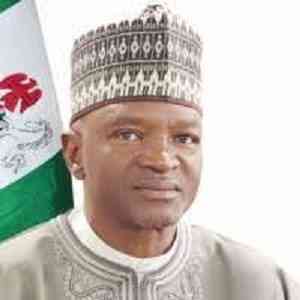
The Minister of Agriculture and Rural Development, Dr Mohammad Abubakar, has said that with concerted efforts of agropreneurs, the agricultural sector would increase its contribution to the nation’s Gross Domestic Product (GDP) from 23 per cent to 50 per cent in the next 10 years.
The minister made this known during a round-table discussion on ‘Agropreneurs’ Success Stories and Mentorship Clinic’, as part of activities to mark this year’s World Food Day (WFD) celebration in Abuja, saying it will further help in the actualization of the Federal Government’s policy of lifting 100 million Nigerians out of poverty in 10 years.
“The Federal Government’s economic diversification policy to agriculture, as an alternative to oil and gas, and the investment of agro-preneurs projected Nigeria to become the largest producer of rice in Africa from 2019, the first in cassava and yam production globally. The effort also made Nigeria to be ranked 14th in maize production and 4th in palm oil production. With these laudable achievements, notable domestic brands in rice are fast competing with foreign international brands,” he said.
The minister noted that the objective of the celebration is to promote worldwide effective action to end hunger, malnutrition and poverty and ensure that everyone at all times and places have physical and economic access to nutritious food.
He emphasized that agriculture has a long-standing role in Nigeria’s economy, with 70 per cent of the population engaged in the sector.
“A recent survey by the National Bureau for Statistics (NBS) indicates that the agricultural sector contributed 23.78 per cent to the country’s Gross Domestic Product (GDP), thus topping seven other sectors with the most contribution,” he stated.
“The agric sector has the potential to be a key driver of growth, job and wealth creation given the country’s viable agro-ecological zones, youthful population and agro-industrial linkages and to lift a sizable number of the population out of poverty.
“The 5.01 per cent of the 2nd quarter, 2021 GDP increase was possible due to the investments in food processing and manufacturing,” he restated.
Abubakar pointed out that the expectation that agriculture will drive the economy would only be achieved when entrepreneurs take deliberate actions to invest in different value chains.
“The potentials across crops, livestock, horticulture and fisheries sub-sectors are enormous. Therefore, it is the ingenuity of entrepreneurs like some of you here that would add value to our products and guarantee the revenue generation potentials of the sector,” he added.
In his contribution, the ministry’s permanent secretary, Dr. Ernest Umakhihe, urged the three tiers of government to collaborate and synergise to revitalize agri-business.
He observed that most of the smallholder farmers were based in the rural areas and closer to their states and local governments, emphasising the need for states to come up with policies, programmes and funds to promote agriculture.
A statement by the ministry’s chief information officer, Mr. Ezeaja Ikemefuna, on behalf of the director, information, said some selected and accomplished agroprenuers – Barr. Nkiruka Stella Okonkwo of Fresh & Young Brains Development Initiative, Emmanuel Ibeawudu of Sub-Sahara Commodities, Akinwale Alabi of Corporate Farmers International and Chigozie Ubanagu – shared their success stories in the industry to encourage Nigerian youths to embrace agriculture as a viable business opportunity.


